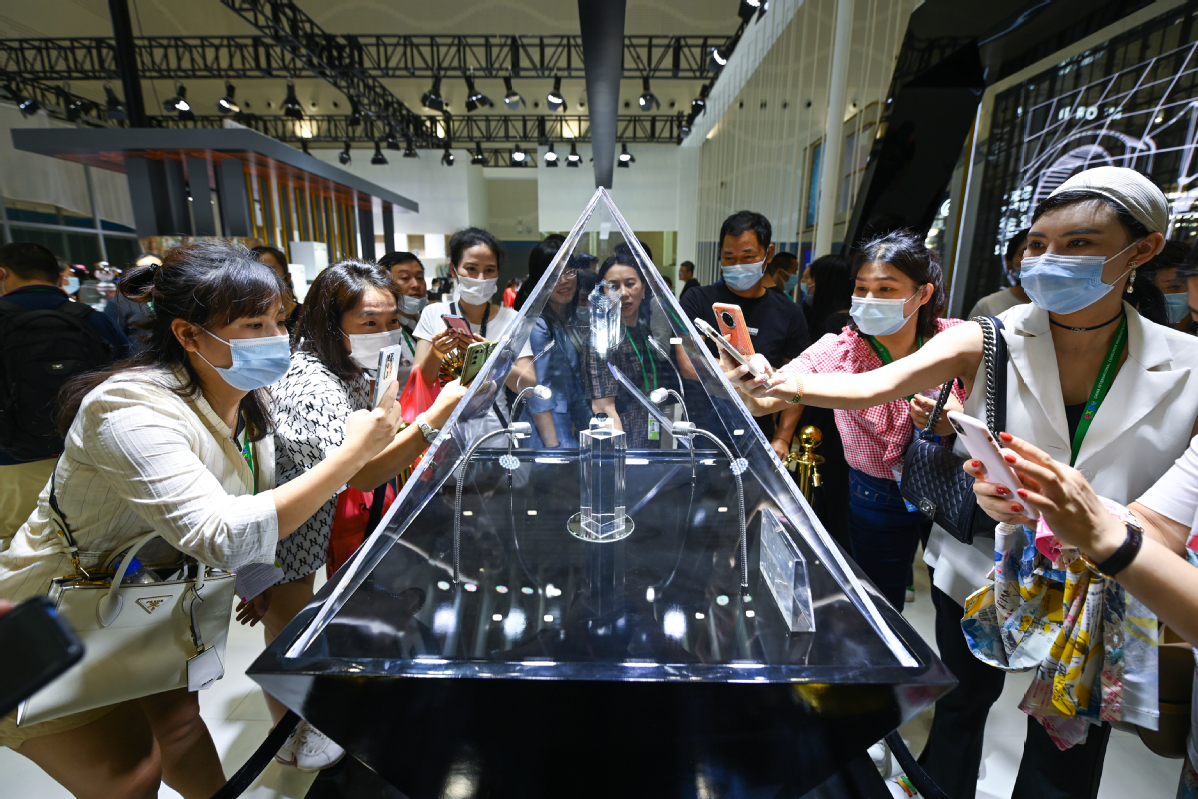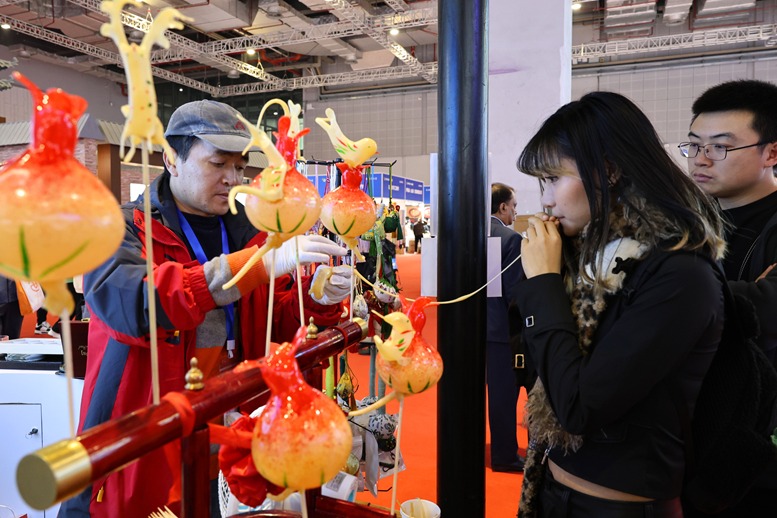Duty-free discounts fueling greater travel spending


Duty-free shopping in China is bolstering consumer spending with a spate of policies driving retail sales, and industry players are not shying away from forecasting more gains after the sector's stellar growth in the past year.
Brands from home and abroad are flocking to introduce new products and exclusives for travel retailers during the China International Consumer Products Expo in Haikou, capital of Hainan province, where incentives like zero import taxes and shorter negative lists are fueling business optimism.
Japanese cosmetics company Shiseido is introducing two highend lineups-The Ginza and Baum-to the Chinese market via the expo, which runs through Monday.
The event and policies to drive offshore duty-free shopping "further show China's resolute determination of opening wider to the outside world to share development opportunities", said Shiseido China CEO Kentaro Fujiwara.
Swiss food and beverage giant Nestle is debuting 29 products at the event, a move "demonstrating continued commitment to the local market", said David Fang, vice-president of Nestle China.
Highlights include the introduction of Vital Proteins, a brand under Nestle Health Science known for fitness and nutritious food offerings, as well as Nestle International Travel Retail, a business unit providing confectionary brands in limited portfolios and packaging exclusive to travel retailers, such as at airports and on cruise ships.
The construction of the Hainan Free Trade Port represents "a big, significant step" in China to further advance opening-up, because it helps facilitate business and captures travel retail opportunities, said Fabrice Megarbane, president of L'Oreal North Asia Zone and CEO of L'Oreal China.
"It offers a fantastic opportunity to address consumers' needs for premium products and we, as a company, are able to interact with them," said Megarbane, whose company has unveiled several Hainan-only duty-free packages under multiple brands.
Last year, China raised the annual cap on zero import duty to 100,000 yuan ($15,548) for each traveler departing from the tropical island. This policy has encouraged travelers from Hainan to spend more when they travel.
Duty-free spending doubled in Hainan last year compared with that of the pre-pandemic level in 2019, Customs officials said. In the first quarter of this year, duty-free sales in Hainan hit 15 billion yuan, and an upward trajectory is expected to extend into the year and beyond.
"I don't see the jump in numbers as 'pent-up' demand following COVID-19, because China has largely gone beyond that (post-lockdown) phase," said Denis Cheng, consumer industries leader at consultancy EY China. "Upscaled and luxury goods seem to be the most important vehicles to boost local spending."
The pursuit for quality consumption is not just confined to physical goods but premium, exclusive experiences. Fosun Tourism Group, which operates upscale hospitality brand Atlantis, saw the brand's revenue jump 36 percent year-on-year in the second half of 2020.
"Tourism and shopping are quite inseparable and mutually reinforcing," said Qian Jiannong, chairman and CEO of Fosun Tourism Group. "Our success story is the best demonstration that demand for higher-end offerings outpaces the industry average. It is clear that the duty-free model manages to transfer spending from overseas to the home market," Qian said.
Carol Luk, a senior manager of business development in China at DFS, the global luxury travel retailer, agreed.
"We believe customers want different experiences, to see more high-end fashion brands and explore more luxurious, exceptional customer service, so it's a combination of factors," Luk said, adding that DFS is looking to build four new duty-free stores in Hainan within the next three to five years.
Ken Gao, a partner at consultancy PwC, pointed out that duty free economy is essentially a year-round (rather than one-off) promotion on boutique goods that is conducive to a healthier consumption composition.
"Enhancing the proportion of purchasing higher-end goods is crucial to expanding consumption in the long run," said Gao. "And what really holds key is not purely high prices but 'value for money'."
Gao pointed out that duty free shopping manages to provide a preferential price for top-notch brands, which "best symbolizes 'value for money' deals and is critical to the structural adjustment of the Chinese economy."
The duty-free economy is boosting domestic spending by leading a consumption pattern that favors quality and trending products, said Fang of Nestle China.
"When speaking of duty-free shopping, we normally refer to the purchase of those mid-to-high-end goods, which are 'boutique' in nature," he said. "When people have easier access to duty free merchandise, they naturally manage to recognize more leading brands, thus fostering this habit of consuming quality products in the long run."




































